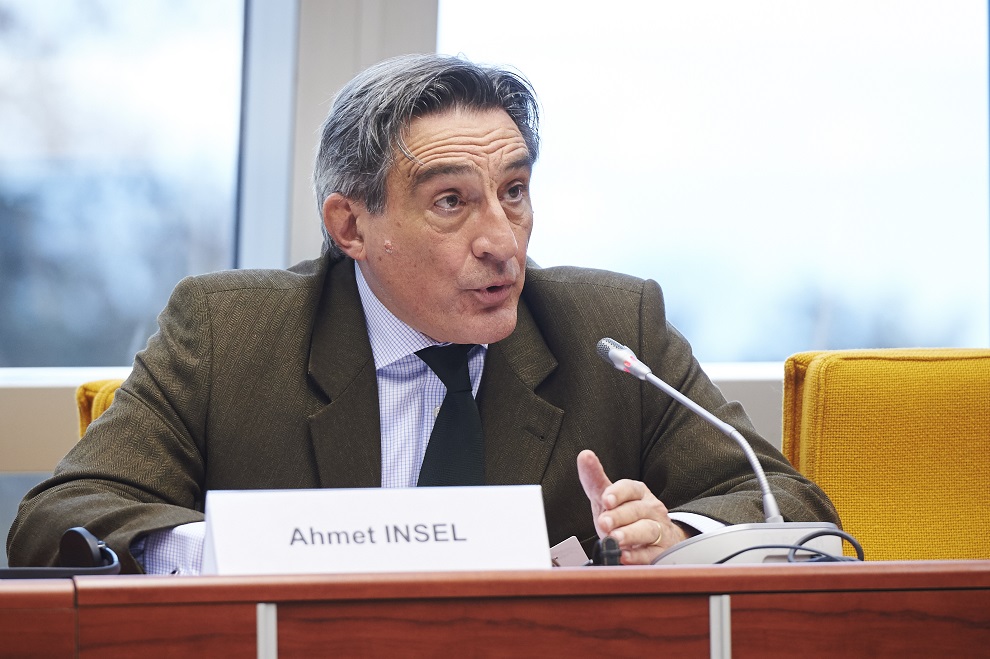Professor Ahmet Insel, economist and political scientist, former professor at Galatasaray University and Panthéon-Sorbonne University, conducted the eighth debate on Democratic Security by presenting his reflections on the interrelatedness of democracy, human rights, the rule of law and security.
At the turn of the 20th century, three key ideas of security appeared around the same time. Firstly, the concept of democratic security as announced in 1989, which intended to bring wider connotations to the word security than just the physical security of the State. Secondly, the concept of human development, launched in 1990 by the UNDP and, thirdly, the extension of this by the UN in 1994 into the concept of human security.
In his exposé, Prof. Insel looked at the apparent paradoxes between state security, human security and democratic security. He argued that for some critics, security had become the prominent paradigm through which managerial authoritarianism was being justified in liberal democracies.
This relationship between the objectives of democratic security and the human security approach was at the centre of this debate, as well as the tensions arising between them and the principle of State security, especially in societies where the structure of democratic norms is fragile. Following this, Prof. Insel presented the situation in Turkey as a concrete illustration of how obsessive securitisation by the State is threatening both democratic security and human security.
Prof. Insel wondered whether Europe’s current obsession with security was an indication that we were living in a new era of instability following the end of the Cold War and the advance of globalisation. According to him, heightened security concerns are reinforcing new State measures of domination and surveillance, and are facilitating the abandonment of fundamental rights and liberties.
For him, although such criticism is useful and necessary, it is nevertheless sometimes insufficient or off-the-mark when it comes to dealing with the multiple security problems that face those citizens who lack the economic, political, cultural or personal means to confront them, as this criticism tends to leave a void which is easily filled by populist discourse.
He observes how democratic security is threatened in societies where we see populist or dictatorial authoritarian governments brought to power by democratic means. In that respect he points out Turkey as one of the examples. The question we are faced with is whether we are destined from now on to choose between authoritarian democracy and democratic authoritarianism.



